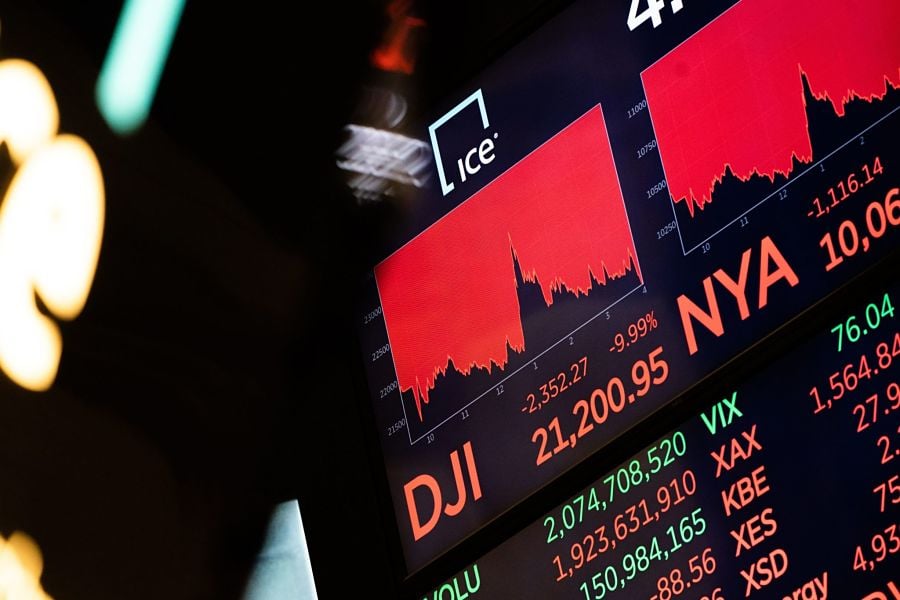

State Street Corp. is delaying rebalances of some of its biggest ETFs amid the coronavirus-fueled market turmoil.
The $256 billion SPDR S&P 500 ETF Trust (SPY) is among almost 60 products tracking S&P Dow Jones indexes that are affected, according to an April 8 letter sent to specialist traders known as authorized participants and seen by Bloomberg News. The document cited “extreme global market volatility” and follows a decision by the index provider to postpone a quarterly rebalancing that was scheduled for last month.
The majority of these funds will now rebalance after market close on June 19. The SPDR S&P 1500 Momentum Tilt ETF and the SPDR S&P 1500 Value Tilt ETF will go through that process after regular trading hours on April 17, while the SPDR S&P Global Infrastructure ETF’s rebalancing was delayed to June 30 after the market close.
“The funds are rules-based and seek to track third-party indexes and our rebalancing will reflect the rules within each methodology,” according to a State Street Global Advisors spokesperson. “If the rebalances are delayed by the index provider, we will follow suit to ensure we perform the stated objective of our investment strategy, which is to seek to provide investment results of a defined benchmark.”
Concern over the economic fallout from the coronavirus outbreak has spurred volatility across assets classes. The S&P 500 recorded the quickest plunge into correction territory on record in February, before snapping back into a bull market this week.

Rajesh Markan earlier this year pleaded guilty to one count of criminal fraud related to his sale of fake investments to 10 clients totaling $2.9 million.

From building trust to steering through emotions and responding to client challenges, new advisors need human skills to shape the future of the advice industry.

"The outcome is correct, but it's disappointing that FINRA had ample opportunity to investigate the merits of clients' allegations in these claims, including the testimony in the three investor arbitrations with hearings," Jeff Erez, a plaintiff's attorney representing a large portion of the Stifel clients, said.

Chair also praised the passage of stablecoin legislation this week.

Maridea Wealth Management's deal in Chicago, Illinois is its first after securing a strategic investment in April.
Orion's Tom Wilson on delivering coordinated, high-touch service in a world where returns alone no longer set you apart.
Barely a decade old, registered index-linked annuities have quickly surged in popularity, thanks to their unique blend of protection and growth potential—an appealing option for investors looking to chart a steadier course through today's choppy market waters, says Myles Lambert, Brighthouse Financial.
